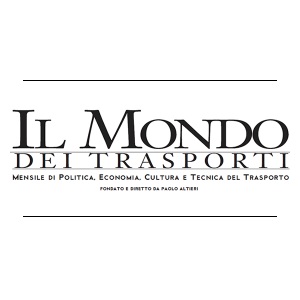On the occasion of the Italy-Republic of Serbia meeting on international road haulage recently held in Rome, the Joint Commission established the 2024 quota of bilateral authorizations, after the visiting delegation had reiterated the request for transport liberalization by road to/from Italy, in advance of the country’s accession to the European Union already advanced for some years and of which trace has been lost.
During the meeting, the visiting delegation provided statistical data on bilateral transport relating to 2022, which highlighted how 75% of transport is carried out by Serbian carriers and the remaining share by carriers from third countries using ECMT multilateral permits, while it is practically absent the Italian carrier.
ANITA, the only industry association present at the meeting, underlined how a bilateral agreement should allow companies from both countries to work in a regime of substantial reciprocity in the use of authorisations.
“It is the first time that in a bilateral meeting with non-EU countries it is put down black and white that Italian transport companies are completely irrelevant and absent in commercial exchanges – comments the President of ANITA Riccardo Morelli – and this figure must make everyone reflect, not just politics, on the consequences for the Italian economy in the medium and long term. In fact, the lesson of our country’s energy dependence is too recent to take the problem lightly and make the same mistake, granting authorizations and ending up creating monopolies”.
In the Republic of Serbia there are about 9,000 manufacturing companies with Italian capital, of which 1,200 have a majority of Italian capital. Through the mixed coupling technique between tractors and semi-trailers, Serbian transport companies have towed around 800 Italian semi-trailers, out of a total of the 2023 base quota of 22,300 authorizations per party, to which an extra quota has already been added.
The unattractiveness of flag carriers is due to the fact that the customer of the transport very often sells the goods ex-works, taking no interest in the carrier carrying out the transport, who is chosen by the buyer. The authorization quota which fully covers the need for transport between the two countries, therefore puts national transport companies out of the game, which in fact record higher personnel and operating costs than companies located in non-EU countries.
“We have sent a letter to the Prime Minister Giorgia Meloni and to the Minister of Infrastructure and Transport Matteo Salvini to draw attention to the issue of international transport with non-EU countries and ask for a discussion table with the competent Ministries and the Associations of representation of the various interests at stake. – continues Morelli – Our Association is deeply concerned about the marginalization of Italian carriers in such trades, which are creating transport monopolies.”
“The higher Italian operating costs but above all the continuous increases in the quota, which should instead be reduced, have led to a de facto liberalization of transport with various non-EU countries in recent years”. – concluded Morelli.
